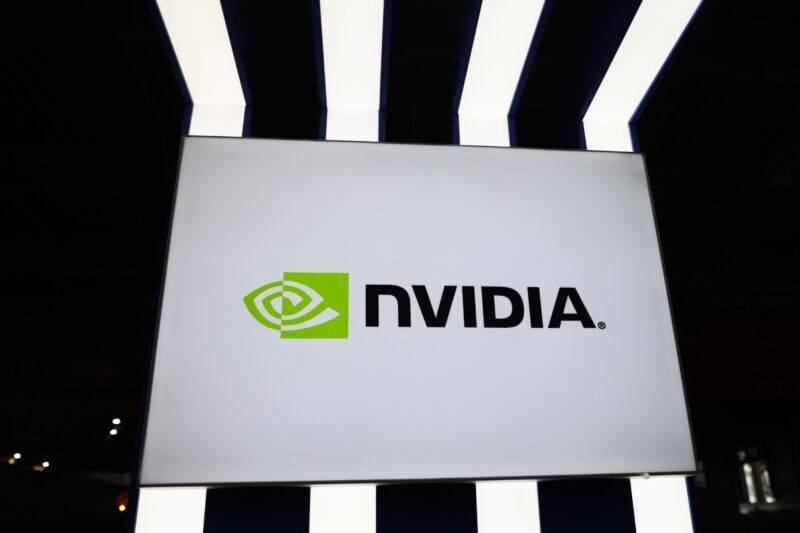DOJ to probe Nvidia while FTC takes lead in investigating Microsoft and OpenAI.

The US Justice Department and Federal Trade Commission reportedly plan investigations into whether Nvidia, Microsoft, and OpenAI are snuffing out competition in artificial intelligence technology.
The agencies struck a deal on how to divide up the investigations, The New York Times reported yesterday. Under this deal, the Justice Department will take the lead role in investigating Nvidia’s behavior while the FTC will take the lead in investigating Microsoft and OpenAI.
The agencies’ agreement “allows them to proceed with antitrust investigations into the dominant roles that Microsoft, OpenAI, and Nvidia play in the artificial intelligence industry, in the strongest sign of how regulatory scrutiny into the powerful technology has escalated,” the NYT wrote.
One potential area of investigation is Nvidia’s chip dominance, “including how the company’s software locks customers into using its chips, as well as how Nvidia distributes those chips to customers,” the report said. An Nvidia spokesperson declined to comment when contacted by Ars today.
High-end GPUs are “scarce,” antitrust chief says
Jonathan Kanter, the assistant attorney general in charge of the DOJ’s antitrust division, discussed the agency’s plans in an interview with the Financial Times this week. Kanter said the DOJ is examining “monopoly choke points and the competitive landscape” in AI.
The DOJ’s examination of the sector encompasses “everything from computing power and the data used to train large language models, to cloud service providers, engineering talent and access to essential hardware such as graphics processing unit chips,” the FT wrote.
Kanter said regulators are worried that AI is “at the high-water mark of competition, not the floor” and want to take action before smaller competitors are shut out of the market. The GPUs needed to train large language models are a “scarce resource,” he was quoted as saying.
“Sometimes the most meaningful intervention is when the intervention is in real time,” Kanter told the Financial Times. “The beauty of that is you can be less invasive.”Advertisement
Microsoft deal scrutinized
The FTC is scrutinizing Microsoft over a March 2024 move in which it hired the CEO of artificial intelligence startup Inflection and most of the company’s staff and paid Inflection $650 million as part of a licensing deal to resell its technology. The FTC is investigating whether Microsoft structured the deal “to avoid a government antitrust review of the transaction,” The Wall Street Journal reported today.
“Companies are required to report acquisitions valued at more than $119 million to federal antitrust-enforcement agencies, which have the option to investigate a deal’s impact on competition,” the WSJ wrote. The FTC reportedly sent subpoenas to Microsoft and Inflection in an attempt “to determine whether Microsoft crafted a deal that would give it control of Inflection but also dodge FTC review of the transaction.”
Inflection built a large language model and a chatbot called Pi. Former Inflection employees are now working on Microsoft’s Copilot chatbot.
“If the agency finds that Microsoft should have reported and sought government review of its deal with Inflection, the FTC could bring an enforcement action against Microsoft,” the WSJ report said. “Officials could ask a court to fine Microsoft and suspend the transaction while the FTC conducts a full-scale investigation of the deal’s impact on competition.”
Microsoft told the WSJ that it complied with antitrust laws, that Inflection continues to operate independently, and that the deals gave Microsoft “the opportunity to recruit individuals at Inflection AI and build a team capable of accelerating Microsoft Copilot.”
OpenAI
Microsoft’s investment in OpenAI has also faced regulatory scrutiny, particularly in Europe. Microsoft has a profit-sharing agreement with OpenAI.
Microsoft President Brad Smith defended the partnership in comments to the Financial Times this week. “The partnerships that we’re pursuing have demonstrably added competition to the marketplace,” Smith was quoted as saying. “I might argue that Microsoft’s partnership with OpenAI has created this new AI market,” and that OpenAI “would not have been able to train or deploy its models” without Microsoft’s help, he said.
We contacted OpenAI today and will update this article if it provides any comment.
In January 2024, the FTC launched an inquiry into AI-related investments and partnerships involving Alphabet, Amazon, Anthropic, Microsoft, and OpenAI.
The FTC also started a separate investigation into OpenAI last year. A civil investigative demand sent to OpenAI focused on potentially unfair or deceptive privacy and data security practices and “risks of harm to consumers, including reputational harm.” The probe focused partly on “generation of harmful or misleading content.”




